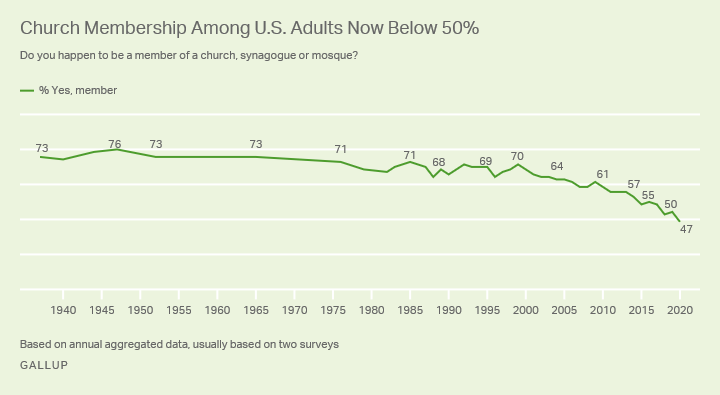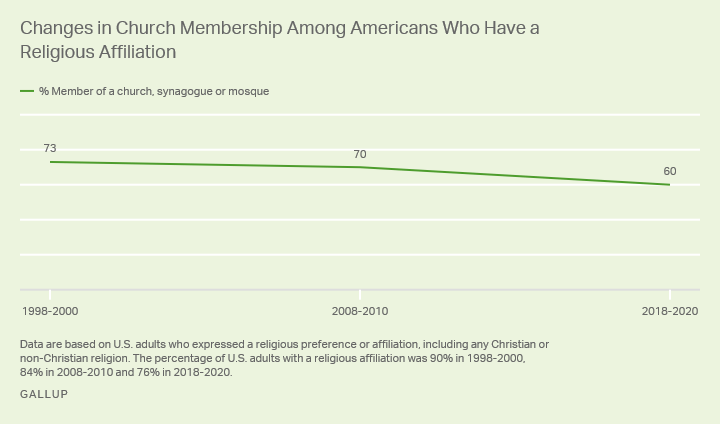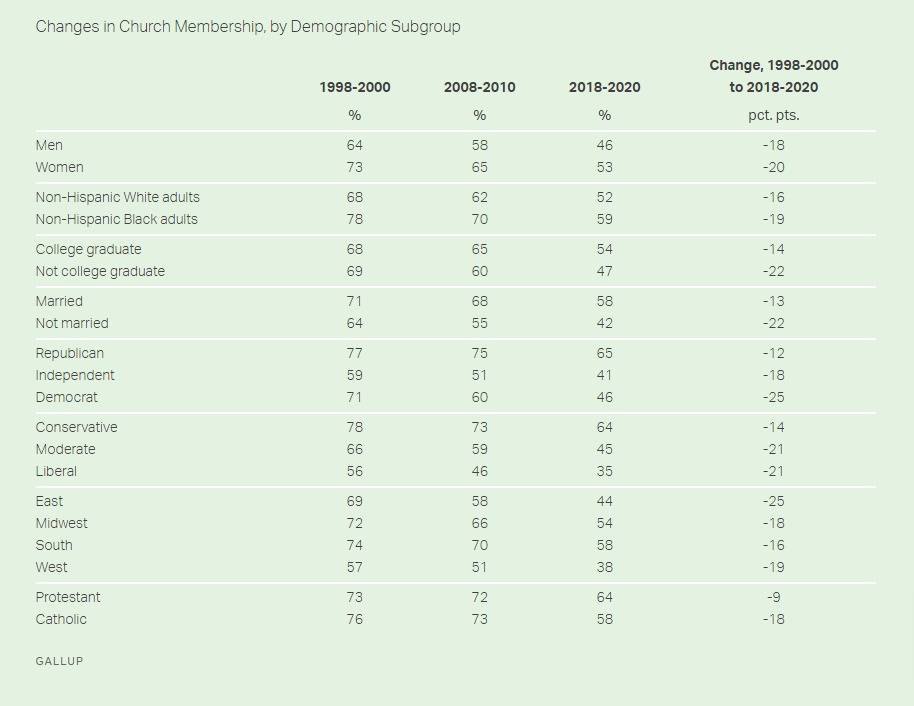In an era where church membership is seemingly on the decline, as evidenced by recent Gallup poll findings, many are questioning its relevance. While objections to formal church membership are not uncommon, it’s crucial to explore why this traditional aspect of church life remains significant today.
Table of contents

Recent Stats on Church Membership
From the Gallup article titled “U.S. Church Membership Falls Below Majority for First Time,” several key findings emerge:
- Decline in Church Membership: As of 2020, less than half of Americans (47%) said they belonged to a church, synagogue, or mosque. This is a significant drop from the 70% membership rate recorded in 1999.
- Generational Differences: The decline in church membership is most pronounced among younger generations. For instance, only 36% of millennials reported being members of a church, compared to 58% of baby boomers and 50% of Generation X.
- Trend Over Time: The decline in church membership has been steady over the past two decades, reflecting broader societal shifts in attitudes towards religion and church involvement.
- Religious Affiliation vs. Membership: While the decline in church membership is notable, it doesn’t necessarily equate to a decline in religious belief or spirituality. Many individuals still identify with a particular religion but choose not to participate in formal membership.

Understanding the Objections
Before delving into the importance of church membership, let’s address the common objections. Some view it as an outdated practice, irrelevant in our digital age.
Others feel it creates an exclusive environment, or they see administrative aspects as burdensome. These objections are often rooted in broader cultural and generational shifts.
Here are the 4 most common objections to membership.
- Perceived Exclusivity: Many believe that formal membership creates an “in-group” and an “out-group,” potentially leading to feelings of exclusion among non-members.
- Irrelevance in the Digital Age: In an era where online services and digital communities are prevalent, some argue that traditional membership is outdated and unnecessary.
- Administrative Burden: The process of managing memberships can be seen as an unnecessary administrative hassle, both for church staff and potential members.
- Fear of Commitment: In a culture that often values flexibility and non-commitment, the idea of formally committing to a church can be daunting for some individuals.

7 Reasons Why Church Membership Matters
1. Biblical Foundation for Belonging
Church membership is deeply rooted in biblical teachings. It reflects the idea of a unified body of believers, each playing a vital role in the community.
2. Fosters Accountability and Spiritual Growth
Membership establishes a framework for accountability and spiritual development, essential for personal growth within the faith.
3. Strengthens Community Bonds
Formal membership fosters a stronger sense of community and belonging, creating deeper connections among churchgoers.
4. Supports Organizational Stability
Membership contributes to the church’s organizational and financial stability, ensuring its ability to serve and grow.
5. Encourages Active Participation
Being a member often leads to more active involvement in church activities, enhancing the vibrancy and effectiveness of the church’s mission.
6. Facilitates Pastoral Care and Support
Membership allows church leaders to provide more targeted pastoral care, ensuring that the needs of the congregation are met effectively.
7. Promotes a Sense of Commitment and Ownership
Membership instills a sense of commitment and ownership, encouraging members to invest in the church’s vision and mission.
Addressing the Objections
Revisiting these objections, it’s clear that while some concerns are valid, they can be addressed by modernizing the concept of membership. This involves making it more inclusive, flexible, and aligned with today’s digital and diverse landscape.
Conclusion
Despite the shifting landscape, church membership retains its importance. It’s not just about a name on a list; it’s about belonging, growing, and contributing to a community of faith. As we navigate these changing times, let’s reconsider the value of church membership and its role in our spiritual and communal lives.
Closing Remarks
Church membership, when approached with a modern and inclusive mindset, can continue to play a crucial role in our spiritual journeys. We invite you to share your thoughts and experiences with church membership, as we collectively explore its evolving significance in our lives today.





